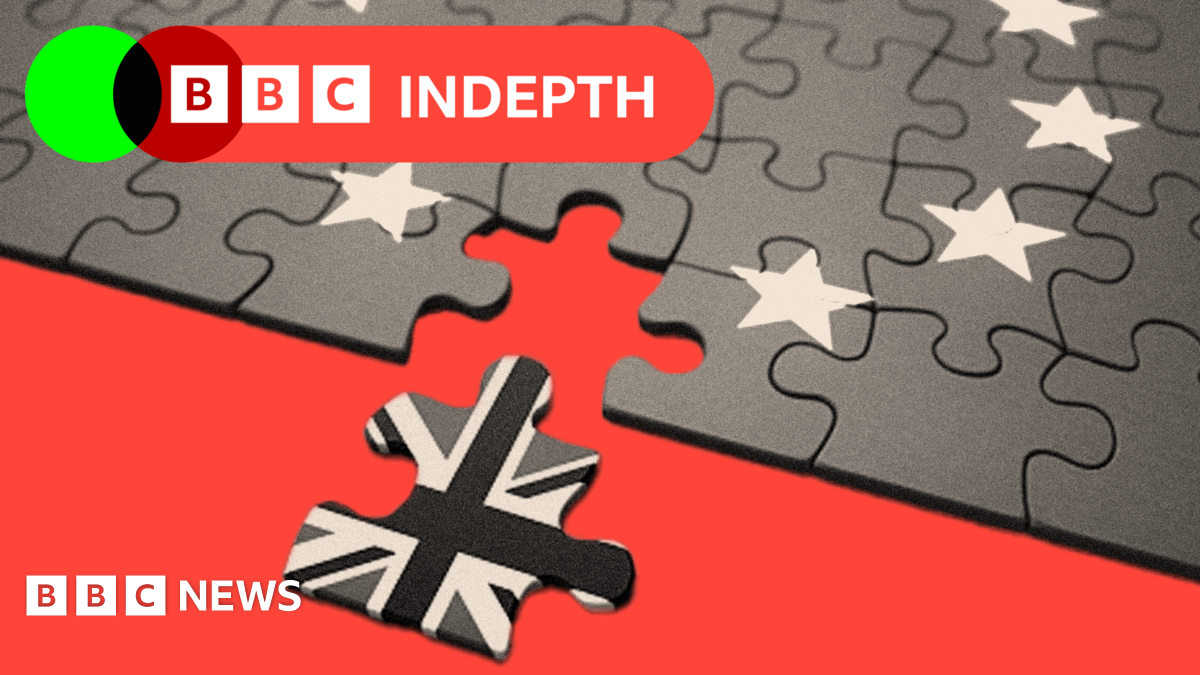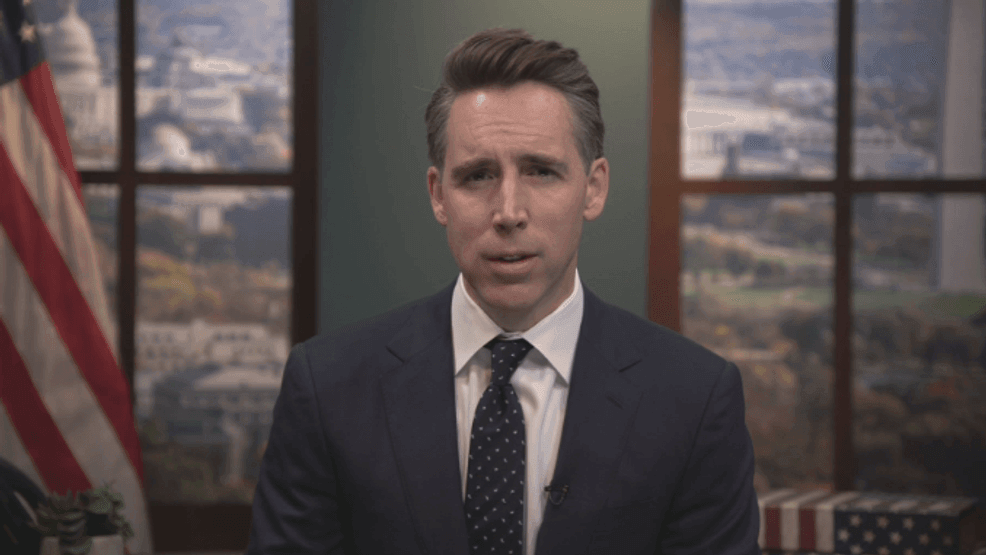Brexit's Backlash: Is Britain Drifting Back Towards The EU?

Welcome to your ultimate source for breaking news, trending updates, and in-depth stories from around the world. Whether it's politics, technology, entertainment, sports, or lifestyle, we bring you real-time updates that keep you informed and ahead of the curve.
Our team works tirelessly to ensure you never miss a moment. From the latest developments in global events to the most talked-about topics on social media, our news platform is designed to deliver accurate and timely information, all in one place.
Stay in the know and join thousands of readers who trust us for reliable, up-to-date content. Explore our expertly curated articles and dive deeper into the stories that matter to you. Visit Best Website now and be part of the conversation. Don't miss out on the headlines that shape our world!
Table of Contents
Brexit's Backlash: Is Britain Drifting Back Towards the EU?
Brexit. The word alone conjures strong emotions, even years after the UK's official departure from the European Union. While the initial euphoria for some has faded, a growing sense of unease and a reassessment of the economic and political consequences are prompting questions: is Britain quietly, perhaps unknowingly, drifting back towards the EU?
The initial promise of a "Global Britain," unburdened by EU regulations and free to forge its own trade deals, hasn't fully materialized. Instead, businesses grapple with increased red tape, supply chain disruptions, and a shrinking access to the EU's vast single market. This has led to a significant economic slowdown, fueling discontent amongst many who voted to leave, as well as those who remained in the EU.
The Economic Realities of Brexit
The economic impact of Brexit is undeniable. Recent reports from the Office for Budget Responsibility (OBR) paint a concerning picture, highlighting the significant long-term costs associated with leaving the EU. These costs extend beyond simple trade deficits; they encompass lost investment, reduced productivity, and a weakened position on the global stage. The fishing industry, often cited as a key beneficiary of Brexit, has also faced significant challenges.
- Reduced Trade: Exports to the EU have plummeted, impacting numerous sectors. This has had a knock-on effect on jobs and investment across the UK.
- Increased Costs: Businesses face higher costs due to new customs checks, tariffs, and regulatory hurdles. This has contributed to inflation and squeezed consumer spending.
- Skills Shortage: The free movement of people, a key aspect of EU membership, is severely restricted. This has exacerbated existing skills shortages in various industries, hindering economic growth.
These economic realities have fueled a growing sense of disillusionment with the post-Brexit landscape, leading many to question the long-term viability of the current approach.
A Shift in Public Opinion?
While the initial Brexit vote was deeply divisive, recent polls suggest a subtle shift in public opinion. Support for rejoining the EU, while not a majority, has steadily increased, particularly amongst younger generations who weren't old enough to vote in the 2016 referendum. This increasing dissatisfaction isn't simply about economic hardship; it's also fueled by concerns about Northern Ireland, the ongoing political instability, and a perceived decline in the UK's international influence.
The Northern Ireland Protocol: A Major Headache
The Northern Ireland Protocol, designed to avoid a hard border on the island of Ireland, has become a major point of contention. It has created trade barriers within the UK itself, leading to economic disruption and political tensions. Finding a resolution to this issue is crucial for any potential rapprochement with the EU.
Signs of Re-Engagement?
While full re-entry into the EU remains a distant prospect, there are subtle signs of a renewed engagement with Brussels. The UK government has sought to negotiate closer collaborations in specific areas, suggesting a pragmatic recognition of the benefits of closer ties with its closest neighbors. This doesn't signify a return to full EU membership, but it does represent a softening of the previously hardline stance.
The Future of the UK-EU Relationship
The future of the UK-EU relationship remains uncertain. While a full return to the EU is unlikely in the short term, the current trajectory suggests a potential shift towards a more pragmatic and collaborative approach. The economic realities of Brexit, combined with evolving public opinion, are forcing a re-evaluation of the initial post-Brexit vision. Whether this translates into closer alignment with the EU or a continued pursuit of independent global trade remains to be seen. The coming years will be crucial in determining the direction of the UK’s relationship with the EU.
What are your thoughts on Brexit's impact? Share your opinions in the comments below.

Thank you for visiting our website, your trusted source for the latest updates and in-depth coverage on Brexit's Backlash: Is Britain Drifting Back Towards The EU?. We're committed to keeping you informed with timely and accurate information to meet your curiosity and needs.
If you have any questions, suggestions, or feedback, we'd love to hear from you. Your insights are valuable to us and help us improve to serve you better. Feel free to reach out through our contact page.
Don't forget to bookmark our website and check back regularly for the latest headlines and trending topics. See you next time, and thank you for being part of our growing community!
Featured Posts
-
 Shocking Mlb Numbers Seven Key Statistics Halfway Through
May 17, 2025
Shocking Mlb Numbers Seven Key Statistics Halfway Through
May 17, 2025 -
 Wendy Williams A Documentary On Her Health Crisis And Guardianship
May 17, 2025
Wendy Williams A Documentary On Her Health Crisis And Guardianship
May 17, 2025 -
 State Farm Allstate Under Scrutiny In Senator Hawleys Insurance Hearing
May 17, 2025
State Farm Allstate Under Scrutiny In Senator Hawleys Insurance Hearing
May 17, 2025 -
 High Winds Cause Damage To Mike Lynchs Superyacht Sources Say
May 17, 2025
High Winds Cause Damage To Mike Lynchs Superyacht Sources Say
May 17, 2025 -
 Major Revisions To Assisted Dying Bill Prompt Uk Parliamentary Debate
May 17, 2025
Major Revisions To Assisted Dying Bill Prompt Uk Parliamentary Debate
May 17, 2025
Latest Posts
-
 Cassie Ventura And Dawn Richard Testify In Sean Diddy Combs Trial
May 18, 2025
Cassie Ventura And Dawn Richard Testify In Sean Diddy Combs Trial
May 18, 2025 -
 Rookie Sfpd Officer Faces Charges Following Multi Vehicle Dui Accident
May 18, 2025
Rookie Sfpd Officer Faces Charges Following Multi Vehicle Dui Accident
May 18, 2025 -
 Tom Cruises Rave Review Fuels Ana De Armas Film Buzz And Relationship Gossip
May 18, 2025
Tom Cruises Rave Review Fuels Ana De Armas Film Buzz And Relationship Gossip
May 18, 2025 -
 Urgent Manhunt Underway After 11 Inmates Escape New Orleans Jail
May 18, 2025
Urgent Manhunt Underway After 11 Inmates Escape New Orleans Jail
May 18, 2025 -
 The 10 Hottest Games In New York Baseball History Evictions Broken Bats And Legendary Showdowns
May 18, 2025
The 10 Hottest Games In New York Baseball History Evictions Broken Bats And Legendary Showdowns
May 18, 2025
